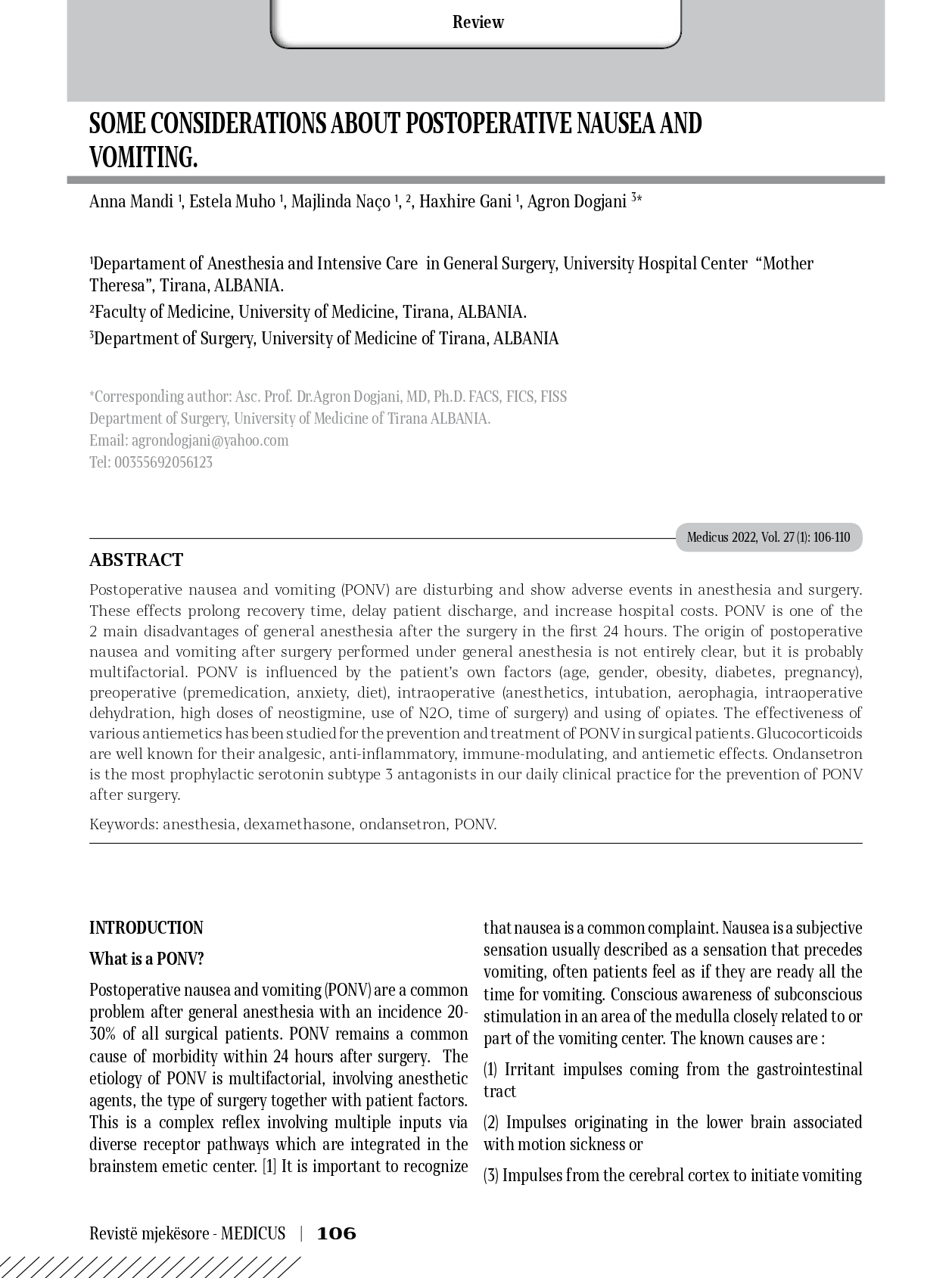Introduction; Postoperative nausea and vomiting (PONV) are disturbing and show adverse events in anesthesia and surgery. These effects prolong recovery time, delay patient discharge, and increase hospital costs. PONV is one of the 2 main disadvantages of general anesthesia after the surgery in the first 24 hours. The origin of postoperative nausea and vomiting after surgery performed under general anesthesia is not entirely clear, but it is probably multifactorial. PONV is influenced by the patient’s own factors (age, gender, obesity, diabetes, pregnancy), preoperative (premedication, anxiety, diet), intraoperative (anesthetics, intubation, aerophagia, intraoperative dehydration, high doses of neostigmine, use of N2O, time of surgery) and using of opiates. The effectiveness of various antiemetics has been studied for the prevention and treatment of PONV in surgical patients. Glucocorticoids are well known for their analgesic, anti-inflammatory, immune-modulating, and antiemetic effects. Ondansetron is the most prophylactic serotonin subtype 3 antagonist in our daily clinical practice for the prevention of PONV after surgery.
Keywords: anesthesia, dexamethasone, ondansetron, PONV

